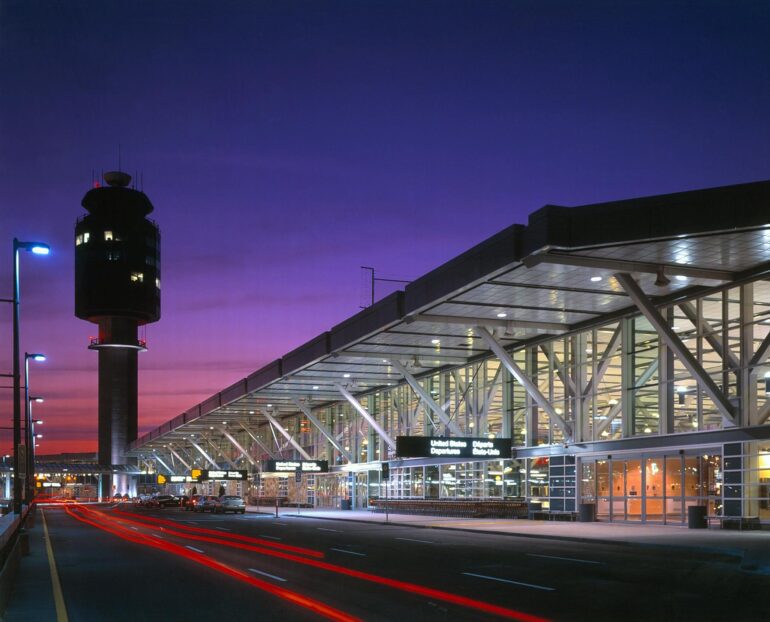TL;DR:
- British Columbia Institute of Technology (BCIT) students collaborate with Vancouver International Airport (YVR) to develop an AI model for predicting transportation demand.
- The AI model aims to reduce taxi wait times and enhance passenger movement efficiency at YVR.
- The model supports YVR’s Net Zero Carbon 2030 goals by providing insights into vehicle idling and promoting efficient transportation.
- The students analyze historical data on taxi use and incoming flights to develop the AI model.
- The AI model’s development involves the Centre for Internet of Things (IoT) at BCIT.
- The students present their AI model to YVR with the guidance of a BCIT faculty member.
- YVR recognizes the importance of innovation and collaboration with educational institutions like BCIT.
- The collaboration demonstrates the application of AI and data to real-world challenges in the airport industry.
Main AI News:
In a bid to enhance the passenger experience and optimize operations at the Vancouver International Airport (YVR), a remarkable collaboration between the airport and a group of enterprising students from the British Columbia Institute of Technology (BCIT) has yielded a cutting-edge artificial intelligence (AI) model designed to forecast transportation demand. With its potential to revolutionize taxi services and streamline passenger movement within the airport, this groundbreaking system has the potential to significantly reduce wait times and enhance overall efficiency.
Crafted by Stuart Barnes, Yuri Fedoruk, and Will Karapetyan, business information technology management (BITMAN) students at BCIT, the AI model serves a pivotal role in supporting YVR’s ambitious Net Zero Carbon 2030 objectives. By providing valuable insights into the idle time of vehicles and promoting more efficient transportation, this innovative solution aligns perfectly with the airport’s commitment to sustainability.
As a bustling international hub, YVR required comprehensive data on transportation demand to effectively manage traffic flow throughout its extensive premises. To address this pressing need, the students embarked on an in-depth analysis of historical taxi usage data. Leveraging the expertise of the Centre for Internet of Things (IoT) at BCIT, they developed an advanced AI model that scrutinized the correlation between incoming flights and the number of taxis entering YVR on an hourly basis.
“We have successfully transformed a real-world problem into a multi-faceted solution,” remarked Karapetyan. “Our comprehensive approach encompasses advisory, technical, functional, and implementation aspects, ensuring a direct impact on a large-scale organization.”
Recognizing the escalating significance of AI and data in today’s labor market, the students received invaluable guidance and support from Amy Goldlist, a faculty member at the BCIT School of Business + Media. Buoyed by her expertise, they presented their final AI model to YVR, showcasing the immense potential it held for the airport’s operational excellence.
Andrew Grams, the director of parking and ground transportation at Vancouver Airport Authority, expressed his appreciation for the collaboration, stating, “Through our partnership with BCIT, we have been able to harness the power of innovation and introduce fresh perspectives to our operations.” He went on to laud the students, highlighting how their ingenious thinking and problem-solving skills were seamlessly translated into tangible solutions for real-world challenges faced by the industry.
This transformative collaboration between BCIT and YVR exemplifies the fusion of academia and industry, illustrating the immense value that can be derived when aspiring minds are given the opportunity to apply their knowledge and expertise to solve complex problems. By harnessing the potential of AI and data-driven insights, the transportation landscape at YVR is set to undergo a remarkable evolution, ultimately benefiting both passengers and the airport as a whole.
Conlcusion:
The collaboration between British Columbia Institute of Technology (BCIT) students and Vancouver International Airport (YVR) to develop an artificial intelligence (AI) model for predicting transportation demand signifies a significant advancement in the market. By leveraging AI and data analytics, this innovative solution has the potential to revolutionize the way airports manage transportation services and enhance the overall passenger experience.
The successful implementation of such advanced technologies not only showcases the power of collaboration between academia and industry but also highlights the growing importance of data-driven insights in optimizing operational efficiency. As other market players observe the positive outcomes of this collaboration, we can expect increased interest and investment in AI-driven solutions for transportation management in the future. This marks a transformative shift towards a more data-driven and technologically advanced market landscape, ultimately benefiting both airports and passengers alike.

